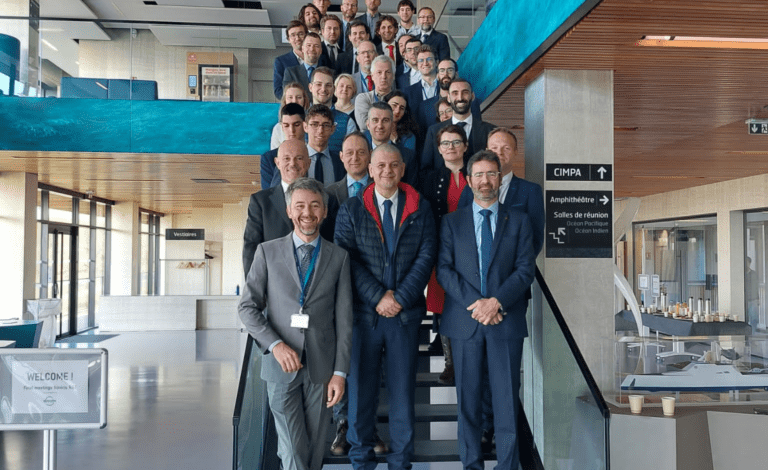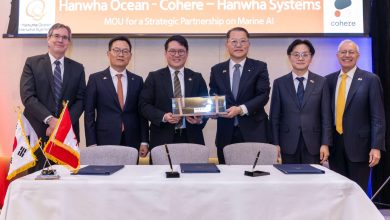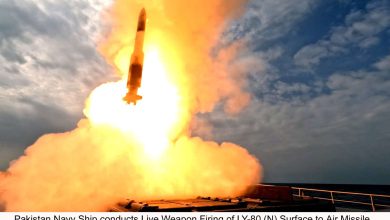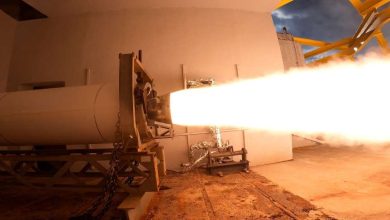
NAVIRIS Unveils Groundbreaking R&D Initiative
The concluding presentations for the final examination of the R&T Programme, pertaining to Digital Ship, transpired on November 22nd in Genova: a tangible outcome of the collaboration between Fincantieri and Naval Group, the parent entities of the Joint Venture NAVIRIS, benefitting both France and Italy, represented respectively by the French Armament General Directorate (DGA) and SEGREDIFESA, which has authorized OCCAR (Organisation for Joint Armament Co-operation) to oversee the contract.
Formalized on June 4th, 2020, the Naviris’ R&T programme agreement marked the initiation of Naviris’ endeavors. Comprising 5 initiatives (*), it has established the groundwork for the competitive advantage of the Joint Venture and has been a crucial facilitator of the collaboration between Fincantieri and Naval Group. The final initiative concentrates on “Digital Ship” and is aimed at advancing warship simulation capabilities throughout its entire lifecycle to better forecast performance and minimize the quantity of real testing, optimize design, and support operational use of warships.
The objective of the demonstrations was to showcase the outcomes of the “Digital Ship” research topic and their applicability.
The gathering was centered on the presentation of all advancements and validation of computation methodologies and tools executed within the context of the “Digital Ship”.
Naviris and OCCAR conveyed their sincere gratitude to the entire unified team, which includes technicians from Fincantieri and Naval Group, for their commitment to these demonstrations, the richness of the results produced, and for the earlier presentations regarding the other study topics. These showcases illustrated a remarkable level of partnership and team integration, providing a solid foundation for future collaboration and the application of these advancements in upcoming naval programs (including both technologies and the developed software use).
(*) The 5 research initiatives constituting Naviris’ R&T programme are:
- Digital ship: this initiative aims to cultivate ship simulation capabilities across the entire lifecycle to better anticipate performances and lessen the extent of real testing. It includes the development of tools and methodologies for preliminary design, system engineering (management of requirements and functional areas), as well as integrated multi-physical modeling and simulation. The current methodologies of physical modeling from Naval Group and Fincantieri complement each other, with Naval Group leveraging Computational Fluid Dynamics and Fincantieri focusing on ideal fluid panel methods. This complementarity could enable both organizations to harness a broader expertise and enhance their capabilities in this sector.
- Energy optimization of electrical architecture: enhancing energy efficiency permits greater mission autonomy, improved fleet management, accurate forecasting of upcoming replenishment needs or operational potential, and adherence to strict environmental regulations on emissions. Fincantieri and Naval Group have already commenced collaboration in this domain to boost the overall effectiveness of the electrical grid onboard surface vessels.
- Winning a sea state: the ambition of this initiative is to enhance the operational range of onboard systems via improved vessel seakeeping and to achieve an equivalent performance level in “sea state” conditions that exceeds current capabilities. This pertains to all critical performance areas, such as crew efficiency in high sea conditions, aviation (including helicopters), weaponry and sensor operation and efficiency/accuracy, replenishment at sea, launching and recovering boats and drones.
- Fuel cells: the implementation of Air-Independent solutions developed by both firms has resulted in the design of fuel cell technologies, the application of which on surface vessels has been extensively discussed. With both companies participating in projects that incorporate an Energy network powered by fuel cells, the intended collaboration aims to consolidate the two projects into a singular maritime platform dedicated to demonstrating the viability of such a concept for naval applications in emissions-restricted environments.
- Factory of the Future: this initiative pertains to the application of digital and robotic technologies to enhance shipyards’ competitiveness through increased productivity, shortened time cycles, improved product quality, and better working conditions for demanding tasks. Fincantieri and Naval Group have already begun addressing these challenges with strategies reflecting both similarities and complementarities. Specifically, Fincantieri is investigating mobile technologies to enhance the productivity of yard operators and managers, while Naval Group aims to employ digital technologies to augment the efficiency and effectiveness of the shipyard’s operators; both of which rely on connectivity technologies (e.g., Wi-Fi), digital models on tablets, and virtual/mixed reality. Considerable advantages would emerge from the joint development efforts of Fincantieri and Naval Group.










